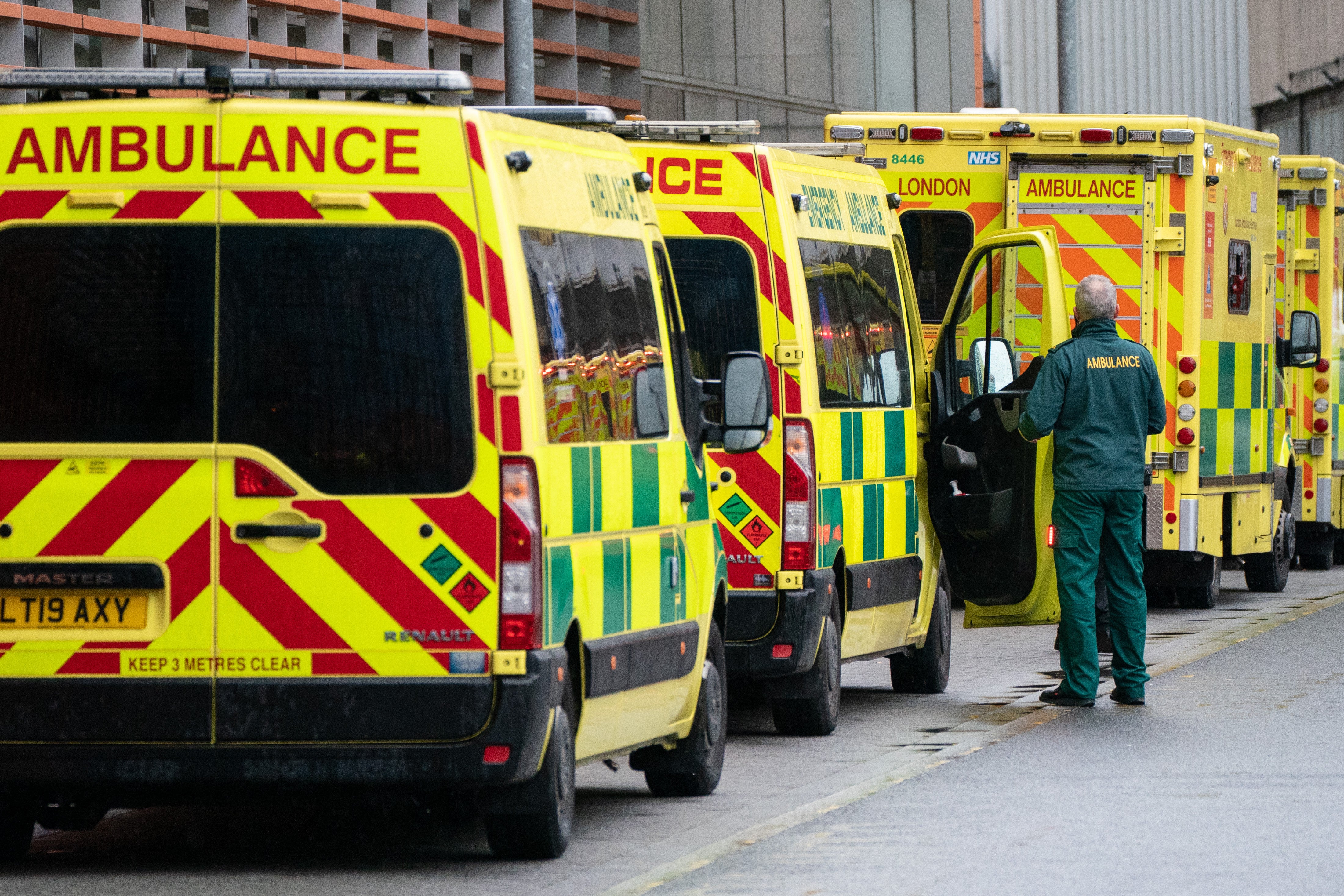Ministers closely monitor Covid data as cases continue to rise
Environment Secretary George Eustice said the Government stood ready to act if additional controls were required.

Ministers have said they are closely monitoring the latest Covid data as cases of the virus continued to surge across much of the country.
Government figures showed there were a record 129,471 lab-confirmed cases in the UK as of 9am Tuesday – although the data was incomplete due to the Christmas holidays with no figures for Scotland or Northern Ireland.
In England there were 9,546 people were in hospital with the disease – up 38% from a week earlier and the highest total since the beginning of March.
The figures come after the Government said there would be no new restrictions in England before the new year – putting it at odds with Scotland, Wales and Northern Ireland which have all put in place additional post-Christmas controls.
Earlier Environment Secretary George Eustice said that while there were early signs that the new Omicron variant was leading to fewer hospital admissions than previous waves, ministers stood ready to act if necessary.
“There is early encouragement from what we know in South Africa that you have fewer hospitalisations and that the number of days that they stay in hospital if they do go into hospital is also lower than in previous variants,” he told the BBC.
“At the moment we don’t think that the evidence supports any more interventions beyond what we have done.
“But obviously we have got to keep it under very close review, because if it is the case that we started to see a big increase in hospitalisations then we would need to act further.”
NHS Providers chief executive Chris Hopson said staff absences due to Covid could pose a bigger challenge to the health service than patients needing treatment for the virus.
“What we’re seeing is in some hospitals we’re now having to redeploy staff to fill the gaps that are being left in critical and essential services by staff who are off with Covid-related absences,” he said.
In Scotland, where there were another 9,360 confirmed cases, First Minister Nicola Sturgeon has urged people to stick to the new rules – including limits on households mixing – over the new year.
In Wales, where there were 12,378 new cases, and Northern Ireland, officials appealed to people to come forward and get their booster jabs.
Meanwhile, the president of the CBI has said people who test positive for Covid-19 should be required to self-isolate for as little time as possible.
Lord Bilimoria welcomed the decision by Health Secretary Sajid Javid to reduce the isolation time in England from 10 days to seven if people test negative on days six and seven.
He pointed out that in South Africa where the Omicron variant was first identified, the requirement to self-isolate has been dropped altogether when people are asymptomatic.
“We have got to do everything we can to stop the disruption to our lives and to our livelihoods and to the economy in as safe a way as possible,” he told BBC Radio 4’s PM programme.
“We need people to isolate for as little time as possible.”
Earlier Paul Hunter, professor in medicine at the University of East Anglia, said that eventually self-isolation rules would have to be eased as people learned to live with the virus.
“Ultimately, we’re going to have to let people who are positive with Covid go about their normal lives as they would do with any other cold. And so, at some point, we’ve got to relax this,” he told the BBC.
“If the self-isolation rules are what’s making the pain associated with Covid, then we need to do that perhaps sooner rather than later. Maybe not quite just yet.”
Meanwhile, business leaders have issued a fresh call for support for the beleaguered hospitality sector, after fears around the new Omicron variant led to a sharp drop-off in trade in the run-up to Christmas.
The industry broadly welcomed the announcement there will be no new Covid restrictions in England before the new year, beyond the Plan B measures already in place.
However, British Chambers of Commerce president Baroness McGregor-Smith warned it would not make up for the business lost during what should have been the busiest time of the year, as people stayed away from pubs and restaurants.
While the Treasury has announced grants of up to £6,000 for businesses affected, she said that some were losing more than that each day.
“In January, February, March we have increasing labour costs and increasing energy costs, among many other costs. The list goes on for businesses, particularly in hospitality,” she told the BBC Radio 4 Today programme.
“I am delighted to see that we are protecting New Year’s Eve, but it just won’t go far enough.”
Lady McGregor-Smith urged the Government to extend the business rates relief and the emergency rate of VAT beyond the end of March, and to bring back a “focused” furlough support scheme.
Bookmark popover
Removed from bookmarks